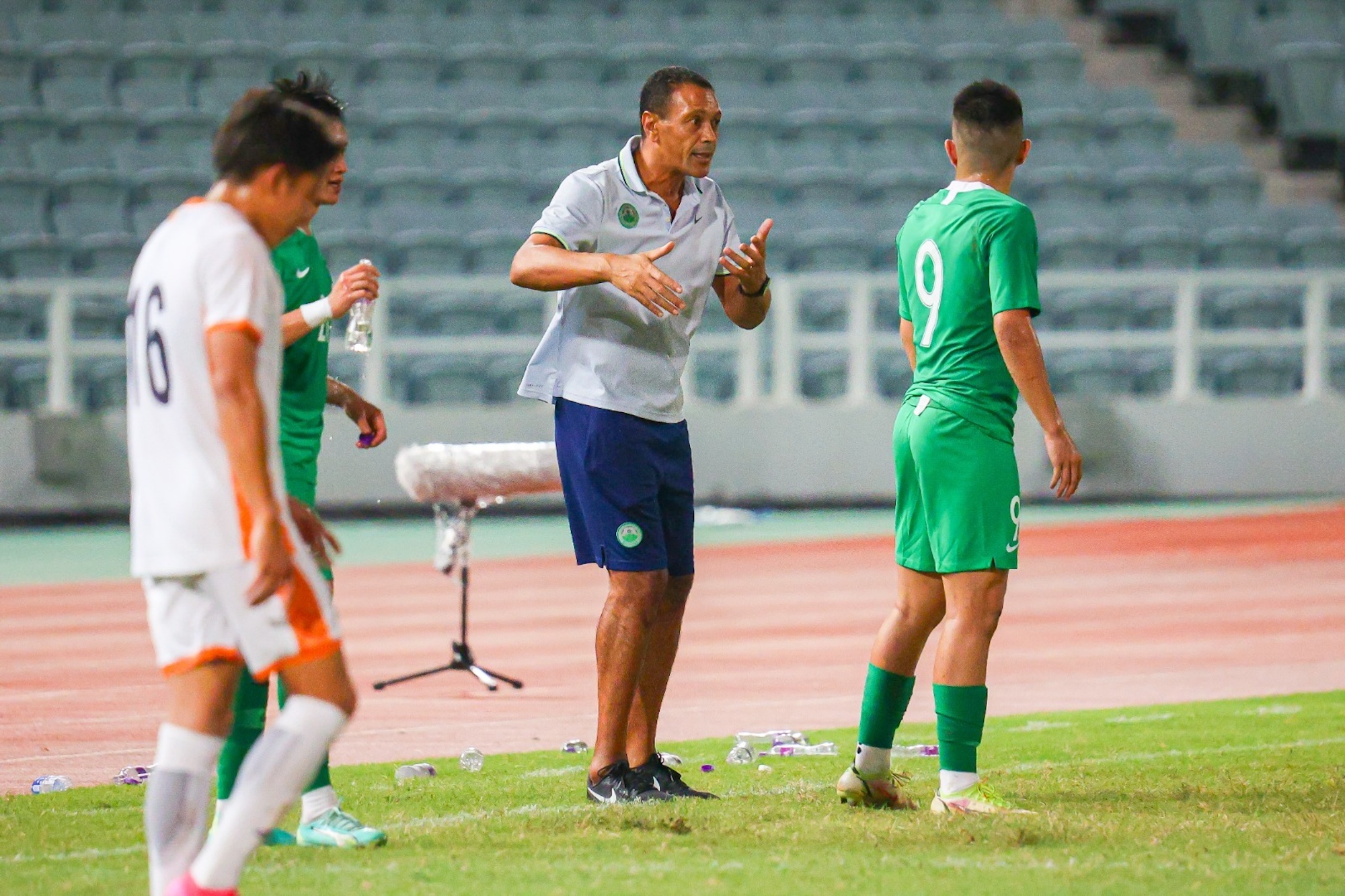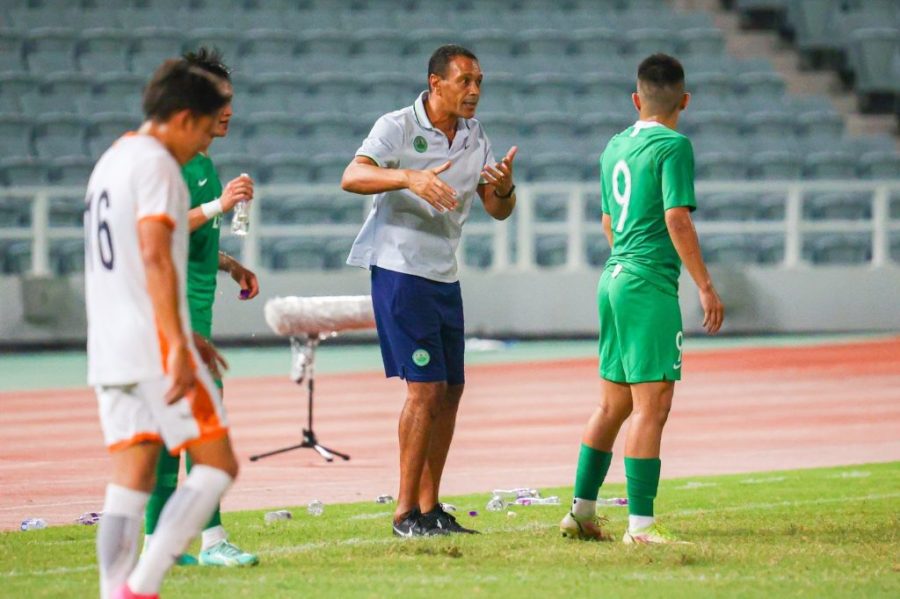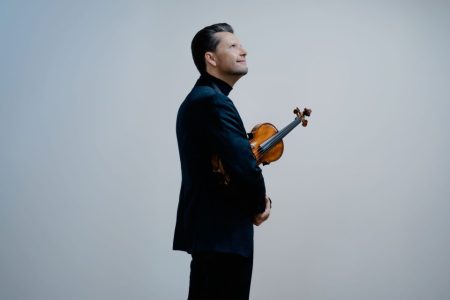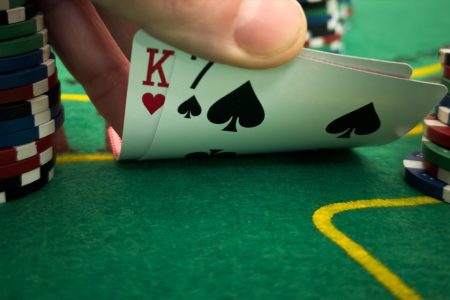Former CF Estrela coach Lázaro Oliveira was appointed the head coach of the Macao men’s soccer team in 2019, but the 56-year-old didn’t take up his post in person until the start of this year, when Covid-19 travel restrictions were lifted and Macao reopened its borders.
So far, Oliveira and the SAR side have struggled to find form. The last four international friendlies have ended in defeat, which doesn’t bode well for the squad as it prepares for the 2026 FIFA World Cup, with the first round of Asian qualification games starting this month.
Oliveira took time out to speak to Macao News about his playing career, the Macao team and his favourite Portuguese restaurant.
[See more: Macao suffer a 4-0 thrashing in an away game against Cambodia]
This interview has been edited for length and clarity.
When did you know you wanted to be a professional footballer?
Since I was a young boy. I started playing for schools and clubs after I moved to Portugal from Angola in 1975 because of the Angolan Civil War.
After playing with some young guys in Portugal, I felt good enough to make it as a footballer. From 1984 to 1987, I played in my hometown for AD Oeiras youth team. Then I joined C.F. Os Marialvas and GD Usseira, where I rarely played because I was serving in the Navy at the same time. I used to finish work, head to training and then return to the headquarters.
At 19, I went for a trial as a left back with second division G.D. Estoril Praia – now in the first division – and was coached by former Portugal national team coach Fernando Santos. The coach liked me. After a week, I signed a two-year contract in 1988. It was difficult during the first year. Then we got promoted to the first league. I stayed with Estoril for three years. I played everywhere in the midfield as an attacking or defensive midfielder. After the club dropped to the lower division, I decided to join another club and try something new.
Since then, I’ve played for Louletano D.C, F.C. Penafiel and C.F. Estrela da Amadora.
When I joined Estrela da Amadora in 1998, my coach was Jorge Jesus – current Al Hilal head coach in the Saudi Pro League. With Jesus, I was at the top of my career. I played a lot and learned so much.
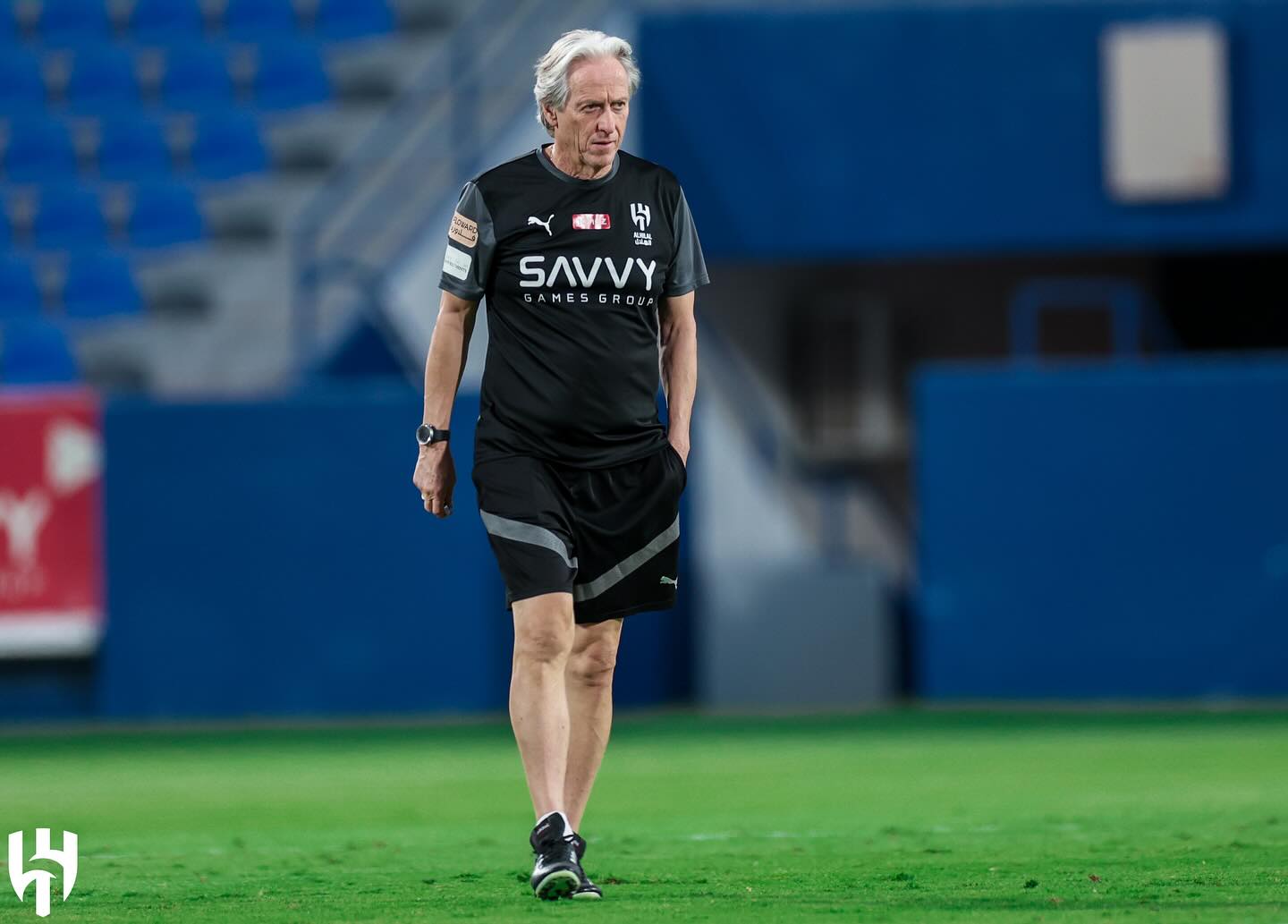
Fernando Santos was very good with his speeches and motivating players. Jorge Jesus was the opposite. He was not good at that. But tactically, he was very good and his training was detailed. All the players coached by Jesus improved a lot, tactically and technically. Plus he was very demanding.
Fernando, Jesus and other coaches I had in the past were role models for me. But I try to be myself. I learned what to and not to do.
[See more: What’s next for football in Macao?]
What has been the highlight of your playing career?
I experienced promotion twice from the second division. The first was with Estoril in 1990, and the other was in 2003 with CF Estrela. Especially the promotion with CF Estrela because we were promoted in the last game at the last minute against Portimonense S.C.
We were losing two-nil and at half time there were no chances from us. In the second half, everything changed. In the last 15 minutes, we scored one and then equalised. I had a chance to make it 3-2 but the keeper made a good save. Then in the last minute, a Brazilian colleague scored a penalty. It was unbelievable.
Another memorable moment was when I was called for the Angola national team in 1998. We went to the Africa Nations Cup in Burkina Faso. I enjoyed the experience and even scored a goal against Namibia. We had three games. Two draws against South Africa and Namibia and one loss against Ivory Coast. We did not qualify for the next round, but it was a good experience.
Which club holds a special place in your heart?
CF Estrela. I was there from 1997 to 2008 – first as a player, then as the assistant coach and then as head coach. After the 2007-08 season, I had to leave because of financial problems. We played that year without receiving any money. The club had no money, players did not have money to eat or pay rent, and there were a lot of problems.
I told the players that we had to do our best, so scouts would notice us and we could go to other clubs in the future. At the end of the season, many players went to good clubs. We had one player from the Portuguese national team Silvestre Varela, who went to FC Porto. It was a good season for us but without money. The club closed in 2009 and right now with new guys, they started from the beginning and are in the first division.

Was it an easy decision to retire as a player?
I retired at 36. It was very easy. There were times I played that season and other times on the bench. But I felt good even though I was 36. We had one match against Boavista and I went to warm up near our goalpost. I motivated my teammates and the coach liked what he saw. He also needed an assistant coach at the time.
During our training the next morning, he asked if I wanted to assist him. I had no problem with that. I told him that I had to go home for lunch and talk to my wife. They offered me a two-year contract as an assistant coach during which I was going to continue receiving the same payment I received as a player but they offered two more years.
For me, it was simple because I continued on the pitch. This was mid-season in 2004. That year, we drew with FC Porto and the coach was Jose Mourinho. It was the same team that won the 2004 Champions League.
What are some of the things you learned as a manager so far?
When you are a player, you are only concerned about playing. You finish a training or game and you go home. When you are a coach, it’s different. You have to plan the training, before and after the game, and [there are] a lot of worries. I try to pass to the players all my experience. I know it’s not easy, I’m very demanding. In the past, a lot of players who trained with me have developed and I try to pass this right now in Macao, even though it’s a different situation.
[See more: Nine questions for Macao’s top centre forward Leong Ka Hang]
One word to describe the Macao men’s football team.
A challenge. Because it’s a new scene for me. It’s different from what I’m used to. It’s a different reality and for us, it’s a challenge to try to make the team get better.
What’s it like managing the SAR side?
It’s starting an idea from the beginning and watching the situation step by step. But for me right now the results are the most important. I think the mindset of the players is changing. We saw the way we played, the way we passed or tried to have the ball. It’s not easy because sometimes they have situations from the past that they are used to and it’s a difficult task to change such situations. But overall, I think the team is improving.
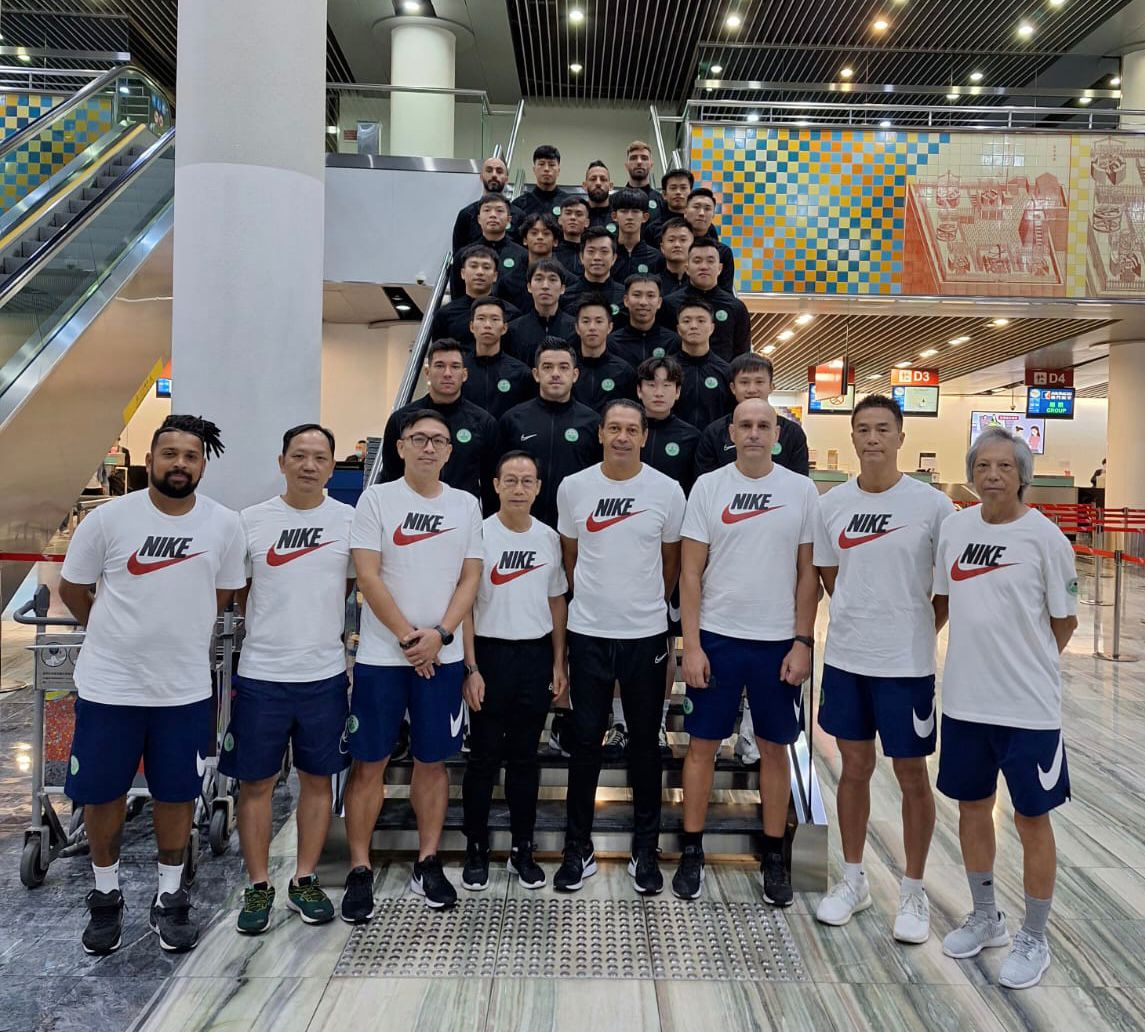
What football team do you support?
I like S.L. Benfica and C.F. Estrela da Amadora. Also, Portimonense S.C. which I coached. I have people there that I care about and I support these teams.
Which player did you look up to?
During my time I loved players who had good technique like Zidane and Ronaldinho. I even played with Ronaldinho’s brother, Roberto de Assis Moreira. He was my teammate at Estrela da Amadora… a very good player.
What do you enjoy doing when you’re not coaching?
I like running. Sometimes I visit different sites here in Macao and get to know the place better. Even some Portuguese restaurants in Macao. So far my favourite is Tromba Rija at the Macau Tower.
